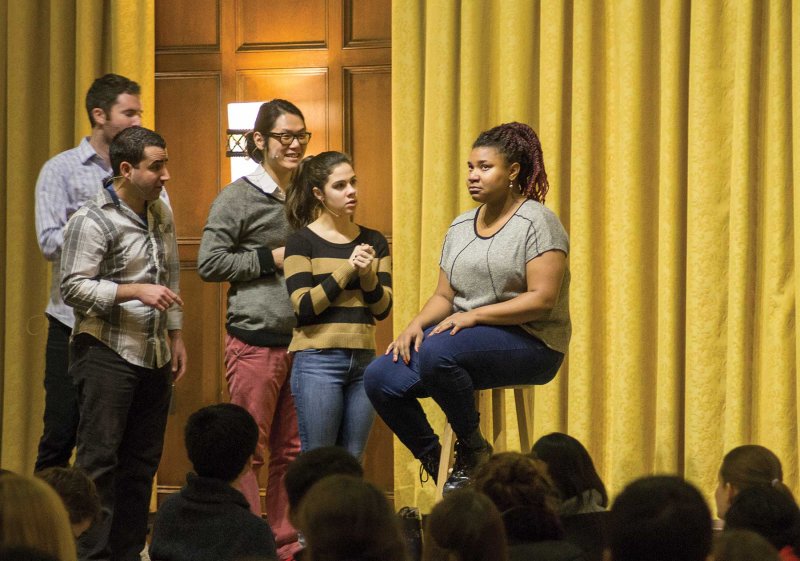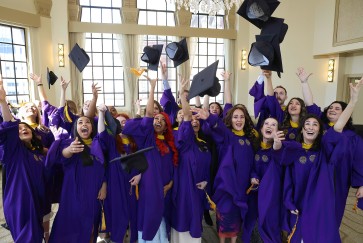Northwestern faculty and graduate students are invited to attend an interactive performance by the University of Michigan Center for Research on Learning and Teaching (CRLT) Players to help students and faculty develop tools for making interactions more inclusive to all students.
“CUTS: Responding to Student Climate Concerns” will be held Monday, May 6 in the Louis Room on the second floor of the Norris University Center.
Session one, from 10 a.m. to noon, is for graduate students and session two, from 2:30 p.m. to 4:30 p.m., is for faculty. Registration is available online.
Co-sponsored by the Office of the Provost and the Searle Center for Advancing Learning and Teaching, the performances aim to address campus climate concerns that have been expressed by students.
The program features interactive sketch performances in which actors play out a hypothetical scene in a classroom between a student of color and a faculty member. A facilitator leads a discussion with the audience about the scene after which the sketch is revised and replayed based on the audience comments.
"I am delighted that the University of Michigan CRLT Players are joining us at Northwestern," said Lindsay Chase-Lansdale, vice provost for academics. "They bring extensive expertise in how to foster welcoming classroom climates for all students. In addition, they address challenges that may occur in classrooms related to race and ethnicity, and I am sure that our graduate students and faculty will find this useful."
The nationally acclaimed CRLT Players have used theater to spark dialogue with audiences of faculty, graduate students and academic leaders at universities across the country to make campuses more inclusive and supportive of all its members. Their innovative approach to kickstarting conversations about diversity in higher education has reached more than 50,000 people since 2000.


